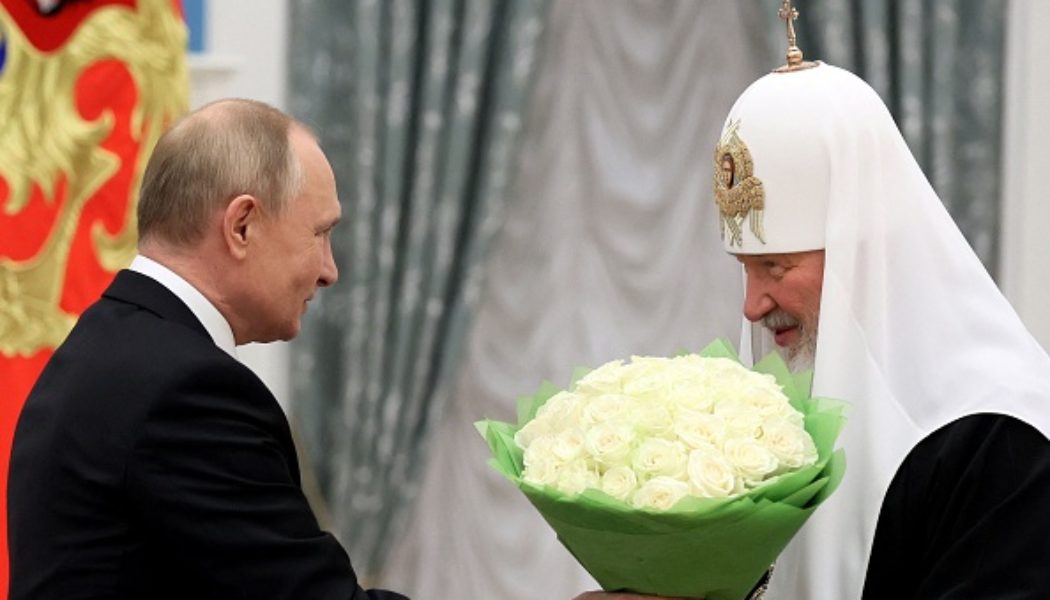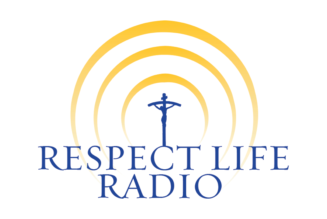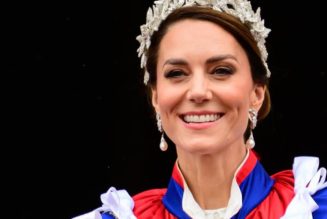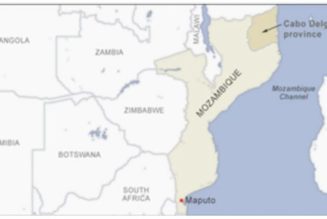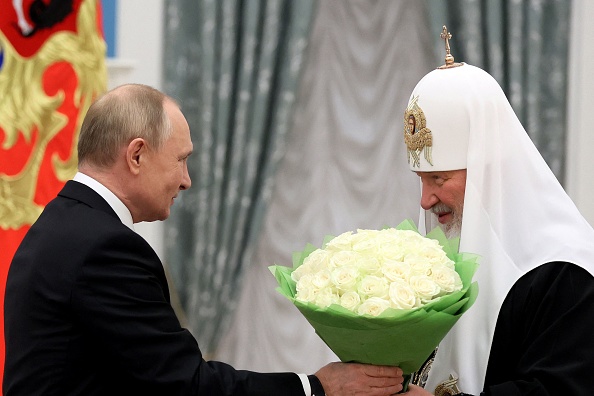
Vatican diplomacy in regards to Russia’s war against Ukraine is operating at three levels, said Secretary of State Cardinal Pietro Parolin: religious, humanitarian and diplomatic.
The Church sends up “insistent prayer” to God, coordinates relief through her charitable agencies, and offers her diplomatic offices. Cardinal Parolin himself spoke with the Russian foreign minister, offering the good offices of the Holy See to broker an end to the invasion.
One level was left out of Cardinal Parolin’s list: the ecclesial or ecumenical level. In times of such conflict, one Christian response is to pray together as a Church, including with those Christians with whom we share imperfect communion. That is impossible at the moment.
Call it the Kirill Question. How should Pope Francis and the Holy See deal with Patriarch Kirill of Moscow and head of the Russian Orthodox Church?
Joint prayer with him is impossible for two reasons: First, he would likely be praying for the success of the Russian invasion, not its end, as he is staunchly allied with Vladimir Putin and Russian state power.
Second, Kirill himself has broken off communion with Bartholomew, the Ecumenical Patriarch in Constantinople, because Bartholomew recognized an autonomous Orthodox Church in Ukraine. Some Russian Orthodox bishops in Ukraine have refused to mention Kirill’s name in the liturgy given his support for Putin’s invasion. Kirill has declared them to be in schism.
Patriarch Kirill is a figure of division in the Orthodox Church today, not a source of unity; a figure of war, not of peace.
It is an immense scandal, but not a surprise.
Under Lenin and Stalin, the Russian Orthodox Church was almost entirely liquidated, suffering an immense martyrdom measured in hundreds of thousands. By 1941, only a few Russian Orthodox bishops remained; the Church was nearly extinct in terms of its hierarchy.
Then Hitler invaded Russia, and Stalin needed to rally all of Mother Russia for a fight to the death with Nazi Germany. Stalin called it the Great Patriotic War, and needed the Russian Orthodox Church to do its part. So he revived the Church to rally Russian society, but the reconstitution of the Church was done on Soviet state terms. It became a de facto part of the regime.
The Russian Orthodox Church was reborn in the context of state power and war aims. Over subsequent generations, the Church was never able to free itself entirely from the clutches of the state. Under Putin, Russian state patronage has meant the increasing subjugation of the Church for national — and now military — purposes.
The architecturally magnificent Cathedral of the Russian Armed Forces demonstrates how far this alliance has gone; portraits of both Stalin and Putin were contemplated, but later abandoned.
For generations, it was not possible for Russian Orthodox clergy to go for advanced studies, get routine bureaucratic permissions or advance in the hierarchy without cooperation with the officially atheist Soviet regime. Hence many senior Orthodox bishops were collaborators, including Kirill himself, who was a former KGB asset.
The Russian invasion has not only isolated Russia diplomatically and economically, but has also isolated Kirill.
What then should the Vatican do? Vatican refusal to condemn Russia’s 2014 annexation of Crimea was rewarded by Putin giving permission for Kirill to meet Pope Francis in 2016 in Cuba. It was the first such meeting and the Vatican trumpeted it as an ecumenical and diplomatic triumph. It was more the latter than the former, as communist Raul Castro served as host and the meeting took place in an airport conference room, not a church.
Putin dangled another meeting with Kirill just last December, hoping to keep the Vatican out of the fray in 2022, as had been done in 2014. But meeting Kirill is now an ecumenical and diplomatic impossibility unless he renounces his support for Putin’s war.
How should Pope Francis respond to this most lamentable of developments? Does the pope of Fratelli Tutti have an obligation to correct Patriarch Kirill, about whom he declared in Havana, “we are brothers”?
Does the Holy Father have an obligation to offer Kirill, in private conversation, a fraternal correction? It’s possible he has done so, but the Vatican has indicated no phone call between the two has taken place.
Moreover, as Patriarch Kirill recklessly splinters communion within the Orthodox Church and sets ecumenical relations with the Catholic Church back at least a generation, does Pope Francis need to express, as universal pastor, his sorrow at this grievous failure of Christian discipleship, to say nothing of pastoral courage?
Among diplomats and ecumenicists seldom is heard a discouraging word, but this situation is grave. An Orthodox patriarch is giving aid and comfort to the Russian army killing his fellow Orthodox believers in Ukraine. Hence the reason his own fellow patriarch in Ukraine, Onufrius of Kyiv, has said that Putin is guilty of the “sin of Cain” and that Patriarch Kirill must intercede with Putin to stop the killing.
Moscow prides itself on being the “Third Rome” of Christianity, after the Eternal City itself and Constantinople. Is it possible for the First Rome to remain quiet about the betrayal of the Third?
If Pope Francis chooses to speak about Patriarch Kirill, he will certainly do so more in sorrow than in anger, pleading for conversion rather than making an accusation.
If he chooses. Is it possible that he will, about Kirill, say nothing?
Join Our Telegram Group : Salvation & Prosperity
